Donald Trump fined $354.9m and banned from running businesses in New York for three years
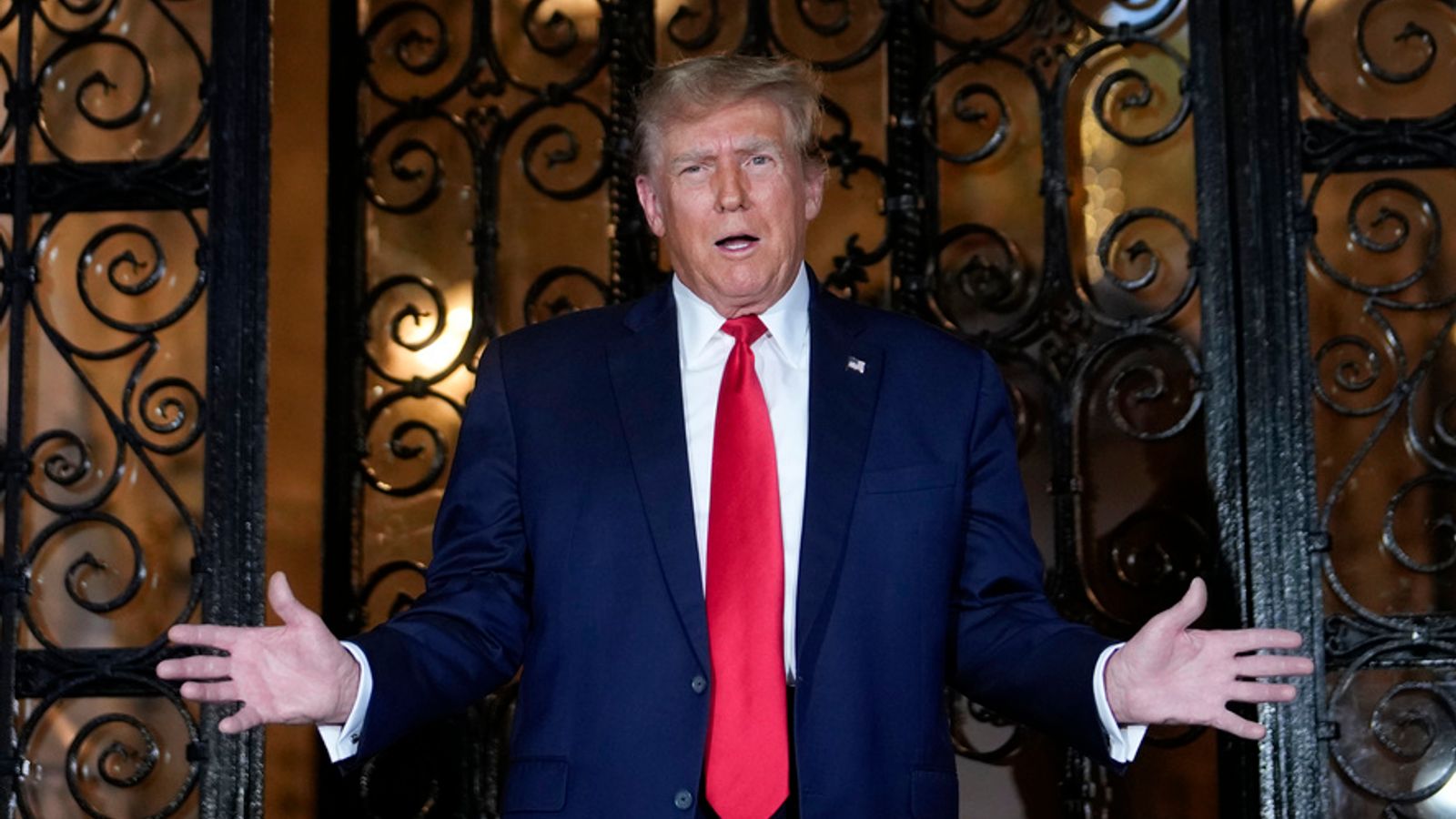
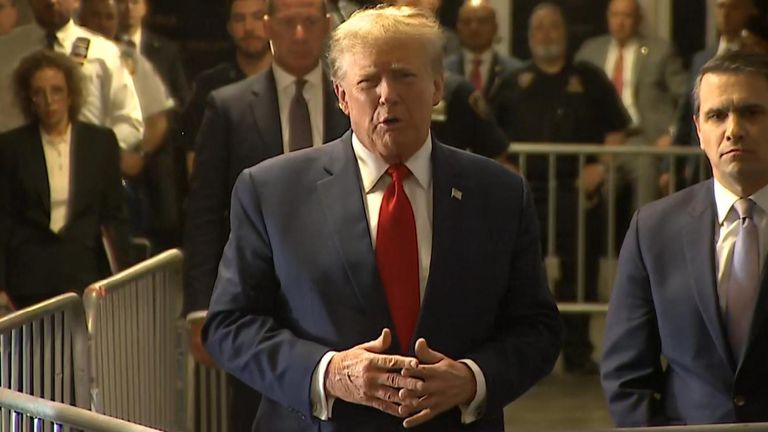
Former US president Donald Trump has been fined $354.9m (£281.6m) after a civil fraud trial in New York.
With interest included, he will have to hand over at least $453.5m (£359.9m).
The judge also banned Trump from running businesses in New York for three years. His sons, Eric and Donald Jr, received similar bans for two years.
Trump and the Trump Organisation cannot apply for loans from any New York financial institution for three years.
Judge Arthur Engoron had already ruled in an earlier judgment that the former president inflated his wealth on financial statements given to banks, insurers and other institutions to make deals and secure loans.
Following the fine, Trump took to his Truth Social platform to vent his anger, describing the decision as a “complete and total sham” and accused the judge and prosecutors of being “deluded, biased and crooked”.
He also claimed the judgment was “illegal” and “unAmerican”.
Later, in a statement made outside his Mar-a-Largo estate, he claimed his company’s accounts were “great” and that he was the victim of a political “witch hunt”, which he blamed on President Joe Biden.
“It is a witch hunt against his [Biden’s] political opponent the likes of which our country has never been seen before,” he said.
Advertisement
“You see it in Third World countries, but you don’t see it here.
“If I weren’t running [for president] none of this stuff would ever happen – none of these lawsuits would have happened – I would have had a nice life. But I enjoy this life for a different reason.”
He also said he planned to appeal.
Alina Habba, his lawyer, said after the hearing that the ruling was a “manifest injustice… plain and simple”.
She said in a statement: “It is the culmination of a multi-year, politically fuelled witch hunt that was designed to ‘take down Donald Trump,’ before Letitia James ever stepped foot into the Attorney General’s office.”
Please use Chrome browser for a more accessible video player
0:23
Trump: ‘They don’t like me running’
New York Attorney General Letitia James sought $370m (£294m) and a ban on Trump and other defendants from doing business in the state in the civil fraud case.
Such a huge penalty could leave Trump’s real estate empire in tatters – an image that helped lead him to fame and the White House in 2016.
Judge Engoron also cancelled his prior ruling from September ordering the “dissolution” of companies that control areas of Trump’s real estate empire, saying this was no longer necessary because he is appointing an independent monitor and compliance director to oversee the businesses.
In the ruling, the judge wrote that Trump and the other defendants in the case “are incapable of admitting the error of their ways”.
Read more:
Putin says Biden is better for Russia than Trump
How Donald Trump blocked US aid for Ukraine
District attorney denies election conflict of interest
The judge called the fraud at the heart of the trial a “venial sin, not a mortal sin”, adding in his written verdict: “They did not rob a bank at gunpoint. Donald Trump is not Bernard Madoff.
“But the frauds found here leap off the page and shock the conscience.
“Their complete lack of contrition and remorse borders on pathological. Instead, they adopt a ‘see no evil, hear no evil, speak no evil’ posture that the evidence belies.”
Donald Trump Jr and Eric Trump were each ordered to pay $4m (£3.1m) by the judge.
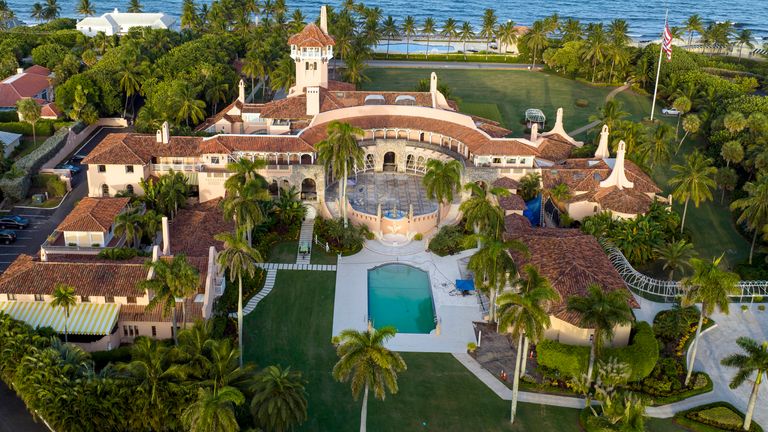
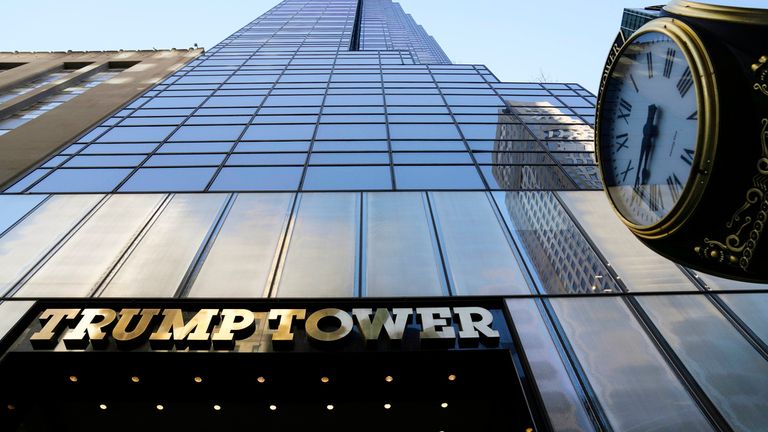
In response, Trump’s legal team claimed the testimony during the trial “proved there was no wrongdoing, no crime, and no victim” and added an appeal would be launched.
Ms Habba added: “Given the grave stakes, we trust that the Appellate Division will overturn this egregious verdict and end this relentless persecution against my clients.
“Let me make one thing perfectly clear: this is not just about Donald Trump – if this decision stands, it will serve as a signal to every single American that New York is no longer open for business.”
Last month Trump was also ordered by another judge in New York to pay $83.3m (£65.5m) in punitive damages to writer E Jean Carroll.
She launched a defamation case against the ex-president, accusing him of sexually assaulting her in a Manhattan department store in the mid-1990s.
In this latest civil case, Ms James’ office estimated Trump exaggerated his wealth by as much as $3.6bn.
State lawyers claimed Trump used the inflated numbers to get lower insurance premiums and favourable loan terms, saving at least $168m £133m) on interest alone.
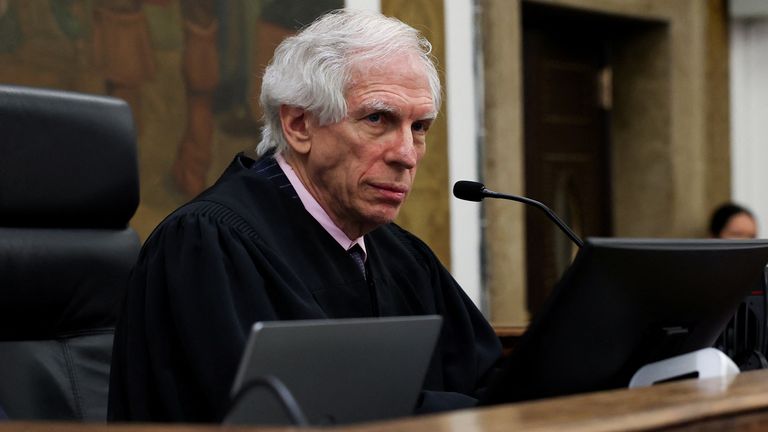
Please use Chrome browser for a more accessible video player
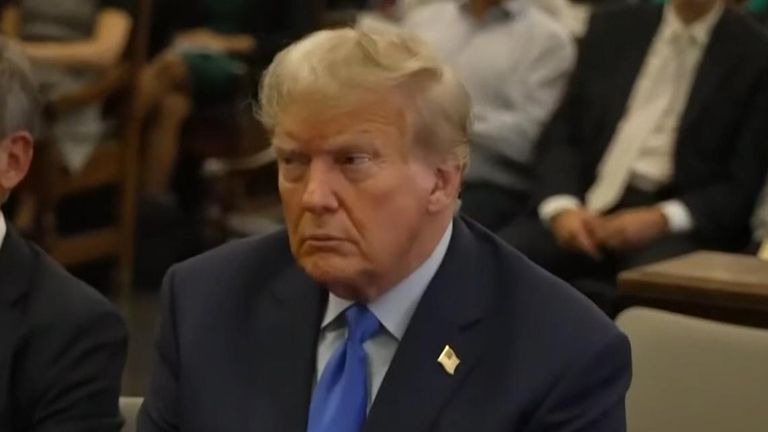
2:18
Donald Trump at the trial in New York
During the trial, Trump launched a six-minute diatribe from the witness stand and was ordered not to disparage court staff – but defied the judge and was fined $15,000 (£11,800) for twice violating the order.
The Republican presidential front-runner testified in November that his financial statements actually understated his net worth and that banks did their own research and were happy with his business.
During closing arguments in January this year, he claimed the case was a “fraud on me”.
Before the trial, Judge Engoron ruled on James’ main claim, finding that Trump’s financial statements were fraudulent.
As punishment, the judge ordered some of his companies should be removed from his control and dissolved, but due to an appeal, another court has put that on hold.
Because it is a civil case, rather than criminal, there was no threat of Trump being jailed.
However, four of the investigations into the former president are on criminal grounds, including one in New York related to alleged hush money payments to a porn star ahead of the 2016 election.
Trump has also been charged in Florida over his handling of classified documents after leaving office and in Washington and Georgia for his bid to overturn his 2020 election loss.